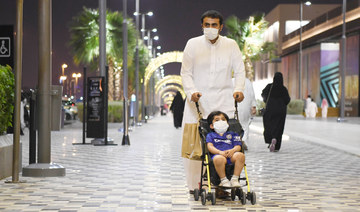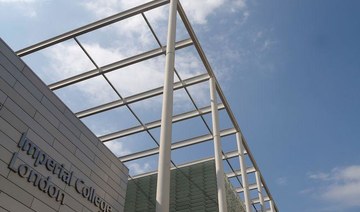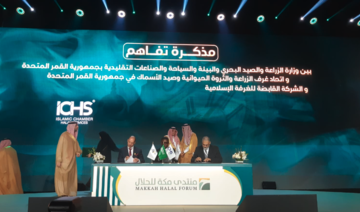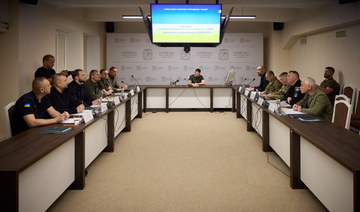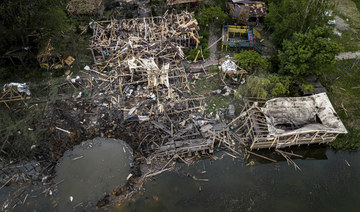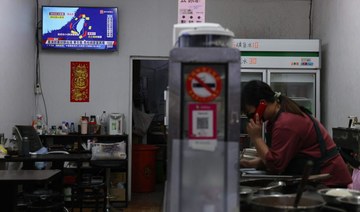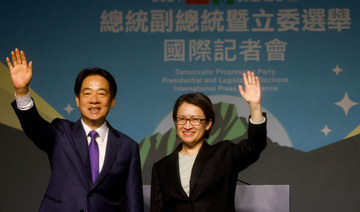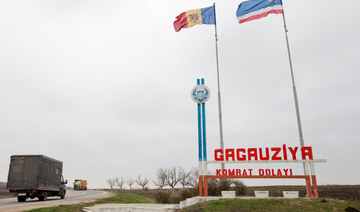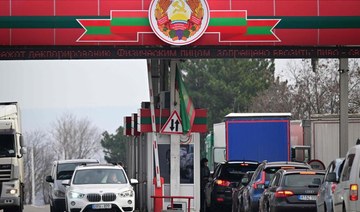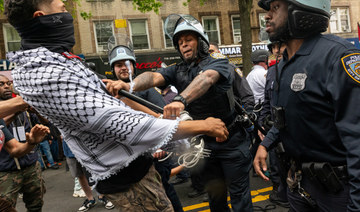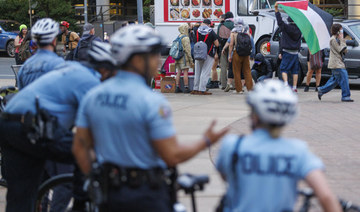WASHINGTON: Western governments on Thursday accused hackers believed to be part of Russian intelligence of trying to steal valuable private information about a coronavirus vaccine, calling out the Kremlin in an unusually detailed public warning to scientists and medical companies.
The alleged culprit is a familiar foe. Intelligence agencies in the United States, United Kingdom and Canada say the hacking group APT29, also known as Cozy Bear, is attacking academic and pharmaceutical research institutions involved in COVID-19 vaccine development. The same group was implicated in the hacking of Democratic email accounts during the 2016 US presidential election.
It was unclear whether any useful information was stolen. But British Foreign Secretary Dominic Raab said, “It is completely unacceptable that the Russian Intelligence Services are targeting those working to combat the coronavirus pandemic.”
He accused Moscow of pursuing “selfish interests with reckless behavior.”
Sticking to more general language, White House press secretary Kayleigh McEnany said, “We worked very closely with our allies to ensure that we would take measures to keep that information safe and we continue do so so.”
The allegation that hackers linked to a foreign government are attempting to siphon secret research during the pandemic is not entirely new. US officials as recently as Thursday have accused China of similar conduct. But the latest warning was startling for the detail it provided, attributing the targeting by name to a particular hacking group and specifying the software vulnerabilities the hackers have been exploiting.
Also, Russian cyberattacks strike a particular nerve in the US given the Kremlin’s sophisticated campaign to influence the 2016 presidential election. And the coordination of the new warning across continents seemed designed to add heft and gravity to the announcement and to prompt the Western targets of the hackers to protect themselves.
“I think (the governments) have very specific intelligence that they can provide,” said John Hultquist, senior director of analysis at Mandiant Threat Intelligence. “The report is full of specific operational information that defenders can use” to protect their networks.
Russian President Vladimir Putin’s spokesman, Dmitry Peskov, rejected the accusations, saying, “We don’t have information about who may have hacked pharmaceutical companies and research centers in Britain.”
“We may say one thing: Russia has nothing to do with those attempts,” Peskov said, according to the state news agency Tass.
The accusations come at a tenuous time for relations between Russia and both the US and UK
Besides political ill will, especially among Democrats, about the 2016 election interference, the Trump administration is under pressure to confront Russia over intelligence information that Moscow offered bounties to Taliban fighters to attack allied fighters.
The Democratic chairman of the House Intelligence Committee, Adam Schiff, said “it’s clear that Russia’s malign cyber operations and other destabilizing activities — from financial and other material support to non-state actors in Afghanistan to poisoning dissidents in democratic countries — have persisted, even when exposed.” He urged President Donald Trump to condemn such activities.
The vaccine assessment came two years to the day after Trump met with Putin in Helsinki and appeared to side with Moscow over US intelligence agencies about the election interference. The UK did not say whether Putin knew about the more recent research hacking, but British officials believe such intelligence would be highly prized.
Relations between Russia and the UK, meanwhile, have plummeted since former spy Sergei Skripal and his daughter were poisoned with a Soviet-made nerve agent in the English city of Salisbury in 2018, though they later recovered. Britain blamed Moscow for the attack, which triggered a round of retaliatory diplomatic expulsions between Russia and Western countries.
More broadly, Thursday’s announcement speaks to the cybersecurity vulnerability created by the pandemic and the global race for a vaccine.
The US Department of Homeland Security’s cybersecurity agency warned in April that cybercriminals and other groups were targeting COVID-19 research, noting at the time that the increase in people teleworking because of the pandemic had created potential avenues for hackers to exploit.
Profit-motivated criminals have exploited the situation, and so have foreign governments “who also have their own urgent demands for information about the pandemic and about things like vaccine research,” Tonya Ugoretz, a deputy assistant director in the FBI’s cyber division, said at a cybersecurity conference last month.
“Some of them are using their cyber capabilities to, for example, attempt to break into the networks of those who are conducting this research as well as into nongovernmental organizations to satisfy their own information needs,” Ugoretz said.
The alert did not name the targeted organizations themselves or say how many were affected. But it did say the organizations were in the US, UK and Canada, and said the goal was to steal information and intellectual property related to vaccine development.
Britain’s NCSC said its assessment was shared by the National Security Agency, the Cybersecurity and Infrastructure Security Agency and by the Canadian Communication Security Establishment.
A 16-page advisory prepared by Western agencies and made public Thursday accuses Cozy Bear of using custom malicious software to target a number of organizations globally. The malware, called WellMess and WellMail, has not previously been associated with the group, the advisory said.
“In recent attacks targeting COVID-19 vaccine research and development, the group conducted basic vulnerability scanning against specific external IP addresses owned by the organizations. The group then deployed public exploits against the vulnerable services identified,” the advisory said.
Cozy Bear is one of two hacking groups suspected of separate break-ins of computer networks of the Democratic National Committee before the 2016 US election. Stolen emails were then published by WikiLeaks in what US intelligence authorities say was an effort to aid Trump’s campaign over Democratic rival Hillary Clinton.
A report on Russian election interference by former special counsel Robert Mueller called out another group, Fancy Bear, in the hack-and-leak operation. Cozy Bear, though, operates “quietly gaining access and gathering intelligence,” said Hultquist of the Mandiant cybersecurity firm.
Their goal, he said, is “good old-fashioned espionage.”
Separately, Thursday, Britain accused “Russian actors” of trying to interfere in December’s UK national election by circulating leaked or stolen documents online. Unlike in the vaccine report, the UK did not allege that the Russian government was involved in the political meddling.
Russia is hacking virus vaccine trials, US, UK, Canada say
https://arab.news/8mcav
Russia is hacking virus vaccine trials, US, UK, Canada say
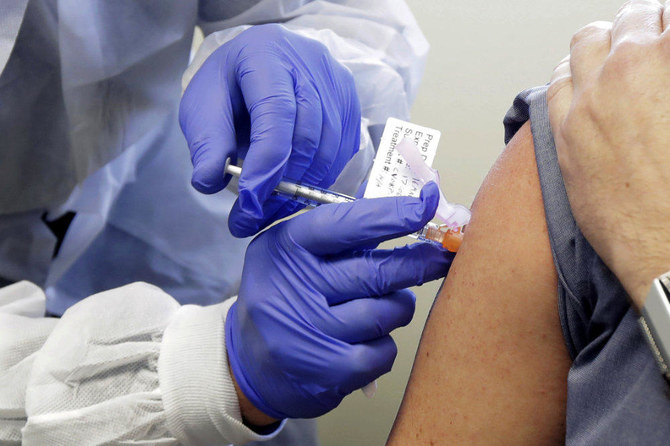
- The alleged culprit is known as APT29, the same group was implicated in the hacking of Democratic email accounts during the 2016 US presidential election
Philippines boosts halal certification to cater to more Muslim tourists

- Tourism is key sector for the Southeast Asian country, comprising 13 percent of GDP
- Philippines wants to double its halal-certified products and services by 2028
MANILA: The Philippines is working to cater more to Muslim tourists, officials have said, with efforts underway to increase halal accreditation of hotels and restaurants in the country.
Tourism is a key sector for the archipelago known for its white sandy beaches, diving spots and diverse culture, having contributed nearly 13 percent, or about $44 billion, to the Philippines’ gross domestic product in 2019.
The Department of Tourism has lately been trying to attract more Muslim tourists from around the world, particularly by ensuring halal certification in restaurants.
“All the regions (in the Philippines) are working … to be Muslim-friendly … Throughout the country, we are doing the same … We continue to encourage our restaurant-owners to be Muslim-friendly and eventually put up their own halal kitchen,” DOT Undersecretary Myra Paz Abubakar told Arab News over the weekend.
The predominantly Catholic Philippines — where Muslims constitute about 10 percent of the nearly 120 million population — has also been working to develop its overall domestic halal industry by 2028, with plans to double the number of its halal-certified products and services.
Earlier this month, the tourism department led a delegation to the Arabian Travel Market in Dubai, where they promoted the country’s best tourism to the international market at a time when tourist arrivals have been increasing from the Middle East.
The Philippines welcomed more than 2 million international travelers since the beginning of the year, according to official data, including a 10 percent increase in visitors arriving from Gulf countries, especially Saudi Arabia and the UAE, which has been among the Philippine government’s key emerging-market targets.
But the Southeast Asian country is also eager to attract international Muslim visitors beyond the Gulf, Abubakar said.
“DOT is not only targeting the Middle East market but our neighboring countries as well such as Brunei, Indonesia and Malaysia,” she said, citing Muslim-majority countries in the region.
The Philippines was recognized with the Emerging Muslim-friendly Destination of the Year award last year at the Halal in Travel Global Summit held in Singapore.
Since then, the Muslim market has been a priority for the country’s tourism sector.
“We’re preparing to certify Muslim-friendly hotels and restaurants … We’re trying to be ready especially with the food because we know that the food, the halal certification, is very important,” DOT regional director Marie Elaine Unchuan told Arab News.
The Philippines, which has Southeast Asia’s third-largest Muslim population, is preparing itself to be as halal-friendly as possible, as during international tourism fairs Philippine officials often get asked about the country’s readiness to host Muslim travelers, she said.
“That was one of the questions … Do we have halal-certified restaurants, and do we have Muslim-friendly hotels? So, we’re really working on it. We’d rather be very prepared so that we can market more.”
Zelensky urges Biden, Xi to join peace summit
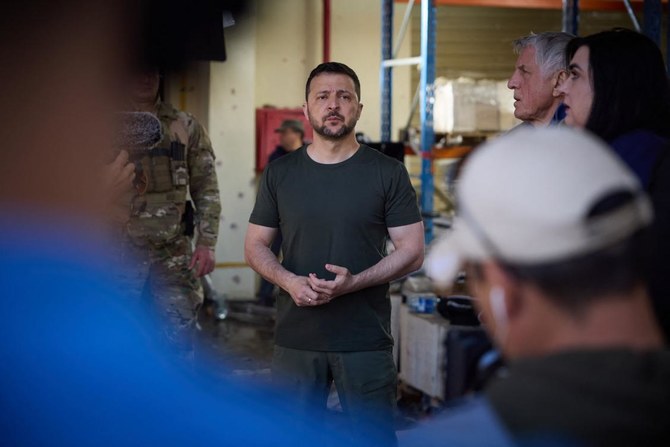
- Moscow’s forces have in recent weeks advanced on the battlefield and stepped up air strikes on cities
- Kyiv hopes the June meeting in Switzerland will help pile international pressure on Russian President Vladimir Putin
KYIV: Ukrainian President Volodymyr Zelensky appealed to US President Joe Biden and Chinese leader Xi Jinping on Sunday to join an upcoming peace summit as his country struggles to stave off unrelenting attacks by Russia in its 27-month-old invasion.
Moscow’s forces have in recent weeks advanced on the battlefield and stepped up air strikes on cities, and Kyiv hopes the June meeting in Switzerland will help pile international pressure on Russian President Vladimir Putin.
In English-language video recorded inside the charred remains of a printing press destroyed on Thursday in a Russian air strike, Zelensky said the summit would “show who in the world really wants to end the war.”
“I am appealing to the leaders of the world who are still aside from the global efforts of the Global Peace Summit – to President Biden, the leader of the United States, and to President Xi, the leader of China,” he said.
“Please, show your leadership in advancing the peace – the real peace and not just a pause between the strikes.
Russia has said it sees no point in the conference to which Moscow is not currently invited.
Zelensky’s comments came two days after Russian sources told Reuters that Putin was ready to halt the war in Ukraine with a negotiated ceasefire that recognizes the current battlefield lines.
Zelensky and Ukraine’s supporters say a ceasefire will only help Russia rearm and regroup.
Russia has in recent months made slow but steady gains along several parts of the sprawling eastern front and is attempting to push deeper into the northeastern Kharkiv region after a ground incursion launched earlier this month.
In an interview with Reuters last week, Zelensky said it was crucial to get as many countries around the table at the peace talks as possible. Putin has said he believes the talks may convert Ukrainian demands for a Russian withdrawal into an ultimatum for Russia.
Taiwan’s president says open to working with China on ‘peace’
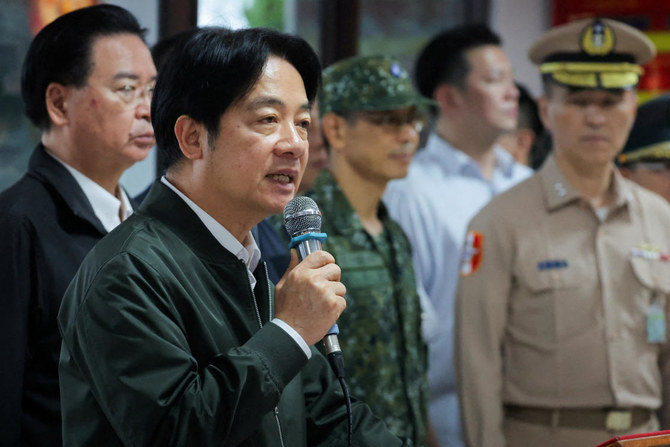
- China launched military games around the island three day last week
- President Lai Ching-te made overtures to Beijing before his inauguration to resume communications
TAIPEI: Taiwan’s president said Sunday he was still open to working with China on building “mutual understanding and reconciliation,” days after Beijing launched military drills around the self-ruled island in response to his inauguration speech.
President Lai Ching-te was sworn into office on Monday, and China — which claims democratic Taiwan as part of its territory and regards Lai as a “dangerous separatist” — launched military games around the island three days later.
Fighter jets, naval vessels and coast guard ships encircled Taiwan until Friday night, which Chinese military analysts said was to practice seizing it.
On Sunday, Lai said his May 20 inaugural speech highlighted that “peace and stability in the Taiwan Strait is a necessary element for global security and prosperity.”
“I also called on China to jointly shoulder the important responsibility of regional stability with Taiwan,” he said during an event with his Democratic Progressive Party (DPP) in southern Tainan.
“I also look forward to enhancing mutual understanding and reconciliation through exchanges and cooperation with China... and moving toward a position of peace and common prosperity.”
He added that “any country making waves in the Taiwan Strait and affecting regional stability will not be accepted by the international community.”
Lai made overtures to Beijing before his inauguration to resume communications — severed since 2016 after former president Tsai Ing-wen took office.
Like Lai, Tsai is also part of the DPP, which holds a stance of defending Taiwan’s sovereignty.
In response, Beijing has upped military and political pressures on Taiwan, and its naval vessels, drones and warplanes maintain a near-daily presence around the island.
On Sunday, two days after the drills ended, Taiwan’s defense ministry reported that seven Chinese aircraft, 14 naval vessels and four coast guard ships were “operating around” the island in a 24-hour period ending at 06:00 a.m. (2200 GMT Saturday).
Moldova turns to Russia to seek extradition of convicted politician
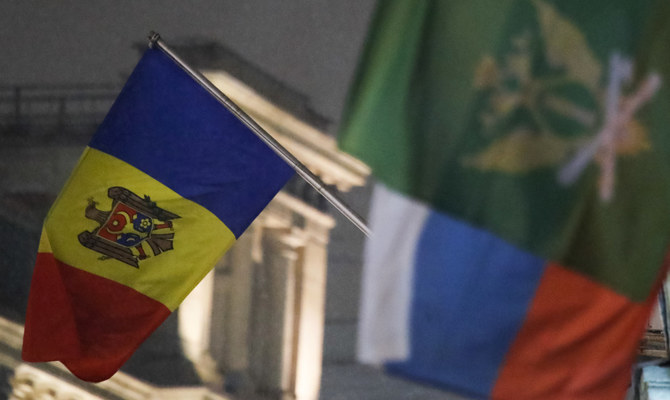
- The Victory bloc, made up of four parties, campaigns with the slogan “No to the EU” and calls for Moldova instead to join the Eurasian Economic Union — a Russian-led regional grouping
CHISINAU: Moldova is now seeking extradition from Russia of an opposition politician convicted of mass fraud after he moved there from exile in Israel, the country’s justice minister said on Saturday.
Ilan Shor, a pro-Russian business magnate, was sentenced last year in absentia to 15 years in prison in connection with the disappearance from the banking system of $1 billion in 2014, dubbed Moldova’s “theft of the century.”
Shor has organized noisy street demonstrations against pro-European President Maia Sandu and urged Moldovans to vote “no” in a referendum authorities have called for October on joining the European Union by 2030.
Justice Minister Veronica-Mihailov Moraru said Moldova would redirect its extradition appeals to Moscow after Shor said he had moved to Russia and announced he had been granted Russian citizenship.
“The justice ministry has not been informed of this by the Russian authorities,” she told TVR Moldova television.
“If we are advised officially that he holds Russian citizenship, we will analyze the circumstances and consider how to act in procedural terms.”
Moldova, an ex-Soviet state lying between Ukraine and Romania, had repeatedly sought Shor’s extradition from Israel.
After his conviction, a party bearing Shor’s name was banned by the Constitutional Court and a new party, called “Chance,” was formed in its place.
Shor is the driving force behind the “Victory” electoral bloc launched last month — in Moscow — to oppose the EU referendum and Sandu’s bid for re-election at a poll to be held on the same date.
He said last week he wanted to become prime minister if a president favorable to his views would nominate him.
Sandu denounces Moscow’s invasion of Ukraine and describes Russia and corruption as the biggest threats to her country.
The Victory bloc, made up of four parties, campaigns with the slogan “No to the EU” and calls for Moldova instead to join the Eurasian Economic Union — a Russian-led regional grouping.
It has not yet decided on a candidate to run against Sandu. The opposition Socialists and Communists, also friendly to Moscow, oppose the pro-EU referendum but have shown little inclination to cooperate with Shor and the Victory bloc.
Polish students occupy top universities to cut ties with Israeli academia
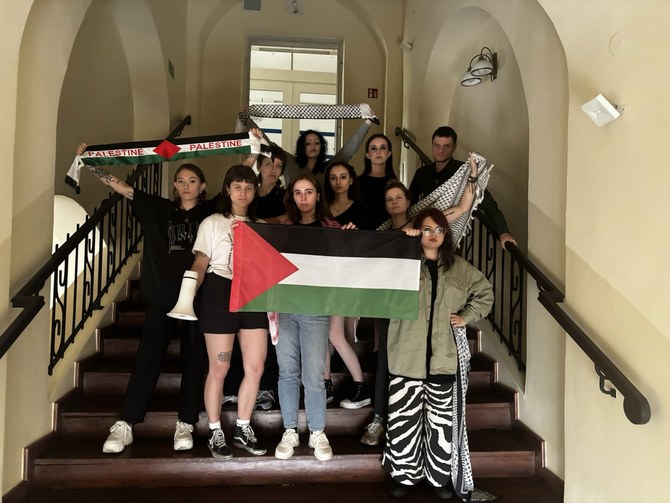
- Students set up encampments at the University of Warsaw and Jagiellonian University
- ‘We consider opposing genocide as our highest obligation,’ students say
WARSAW: Polish students have joined the global movement to end partnerships with Israeli institutions and were occupying the country’s top campuses on Saturday because of Israel’s war on Gaza.
Students and alumni of 12 universities in Poland have been calling on their management to publicly disclose which Israeli academia, research centers, organizations and companies they have been cooperating with and in what scope.
In open letters to rectors, they demanded that the universities “boycott Israeli institutions at the national and international level until the occupation of Palestine ends, recognize the right of Palestinians to equality and self-determination, and recognize the right of return for Palestinian refugees.”
As no action followed from university authorities, on Friday evening they set up encampments at the campuses of the University of Warsaw — the country’s largest academic institution — and of the Jagiellonian University — the oldest and most prestigious.
In a joint manifesto, the protesters said: “We will occupy the university space with our own bodies to demand action ... we consider opposing genocide as our highest obligation.”
Israeli airstrikes and ground offensives in Gaza have since October killed 36,000 Palestinians with more than 80,000 wounded, the vast majority children and women. Many have lost their lives as most of the hospitals have been flattened by bombardment and no medical assistance could reach them.
Protesting students say that failing to oppose the onslaught would mean tacit consent — and complicity.
The University of Warsaw is linked through a research project to the Ben-Gurion University, whose Homeland Security Institute partners with the biggest Israeli arms manufacturers such as Elbit Systems, Rafael Advanced Defense Systems and the Israeli Ministry of Defense. It is also linked to the University of Haifa, which runs special programs for Israeli forces and intelligence.
“As a student, I feel I should have a say in what our university is investing and what its partners are. We know that the university is tied to the Israeli army, forces and apartheid system,” Agnieszka, a sociology student and one of the coordinators of the strike at the University of Warsaw, told Arab News.
“That’s why I’m here ... I hope it will change something.”
Agnieszka was speaking from behind the university gate, which has been locked since Friday evening as campus authorities sealed all entry points, preventing anyone from leaving or getting inside.
People were coming to the gate and the campus fence to bring the students water, food and power banks, and to show support.
While no one could join their encampment anymore, the dozens of students gathered inside believed they could bring change.
“We’ve been protesting since October against the genocide that is occurring in Gaza, and now we’re sort of bringing it closer,” said Nena, who studies at the Faculty of Philosophy.
“We have more direct impact on the institutions we are part of.”
At the same time, 300 km away, students of the Jagiellonian University in Krakow were also locked up at their campus, posing the same demands as those in Warsaw, and vowing that they “will not be indifferent, will not be silent, will not be passive,” as they called for others to join.
“It’s important for me to be here,” Gabriela, an international relations student told Arab News from the Krakow protest site. “It’s important to show solidarity with other encampments around the world, so that authorities can’t ignore our demands any longer.”
The University of Warsaw and the Jagiellonian University have not engaged in any discussions with the protesters. Neither university commented on whether it would agree to the students’ demands. The spokesperson of the Jagiellonian University said that to “ensure the safety of the strike participants,” there was a person “appointed to monitor the situation.”



